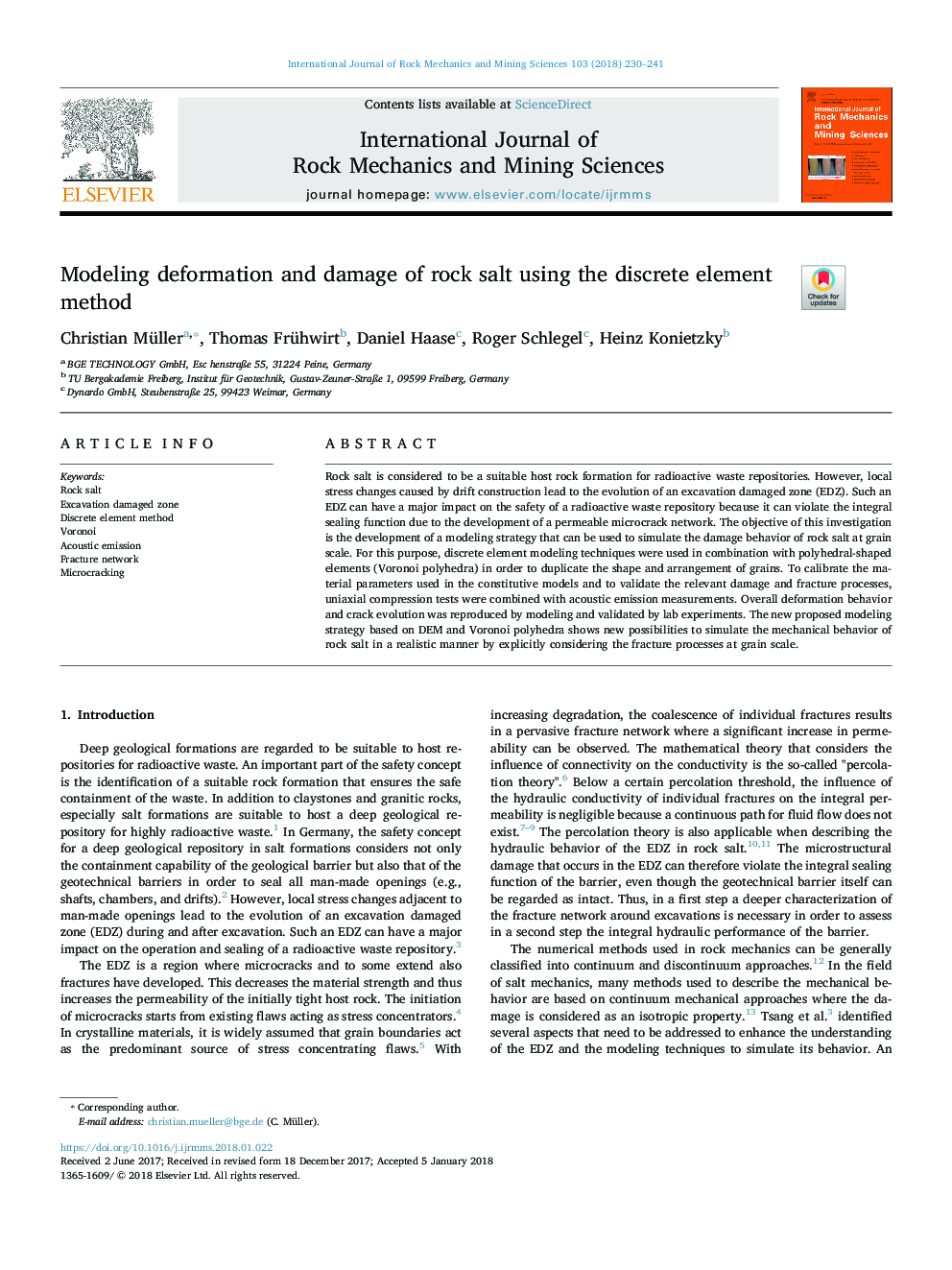| Article ID | Journal | Published Year | Pages | File Type |
|---|---|---|---|---|
| 7206346 | International Journal of Rock Mechanics and Mining Sciences | 2018 | 12 Pages |
Abstract
Rock salt is considered to be a suitable host rock formation for radioactive waste repositories. However, local stress changes caused by drift construction lead to the evolution of an excavation damaged zone (EDZ). Such an EDZ can have a major impact on the safety of a radioactive waste repository because it can violate the integral sealing function due to the development of a permeable microcrack network. The objective of this investigation is the development of a modeling strategy that can be used to simulate the damage behavior of rock salt at grain scale. For this purpose, discrete element modeling techniques were used in combination with polyhedral-shaped elements (Voronoi polyhedra) in order to duplicate the shape and arrangement of grains. To calibrate the material parameters used in the constitutive models and to validate the relevant damage and fracture processes, uniaxial compression tests were combined with acoustic emission measurements. Overall deformation behavior and crack evolution was reproduced by modeling and validated by lab experiments. The new proposed modeling strategy based on DEM and Voronoi polyhedra shows new possibilities to simulate the mechanical behavior of rock salt in a realistic manner by explicitly considering the fracture processes at grain scale.
Keywords
Related Topics
Physical Sciences and Engineering
Earth and Planetary Sciences
Geotechnical Engineering and Engineering Geology
Authors
Christian Müller, Thomas Frühwirt, Daniel Haase, Roger Schlegel, Heinz Konietzky,
